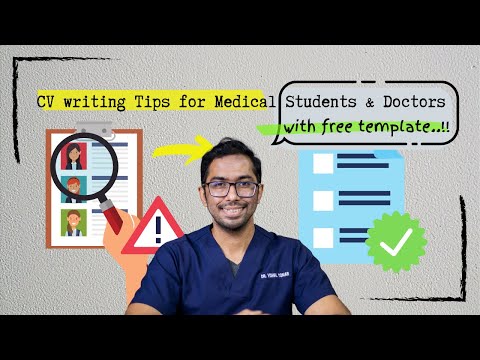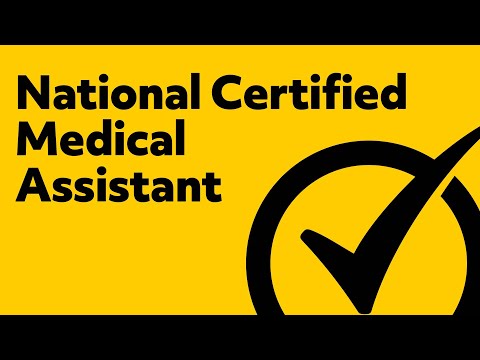How to Write a Resume for a Medical Assistant (Entry Level)
Contents [show]
Are you a medical assistant looking for your first job? Or are you looking to make a career change and want to know how to write a resume for a medical assistant position?
If you answered yes to either of these, then you’ve come to the right place! In this article, we will show you how to write a resume for a medical assistant position, including what skills and experience to include and how to format your resume.
With this information, you
Checkout this video:
Introduction: Why a medical assistant resume is important
A resume is an important tool for any job seeker, but for Medical assistants it is especially critical. Medical Assistants are in high demand and the competition for jobs can be fierce. Your resume is your first opportunity to make a good impression on a potential employer and to set yourself apart from other medical assistant job seekers.
While your experience, if you have any, will speak for itself, a well-written resume will show that you are a serious job candidate who is professional and capable of handling the responsibilities of a medical assistant. In this guide, we will discuss what you should include in your entry-level medical assistant resume and how you can make it stand out from the rest.
Objective: What you should include in your medical assistant resume objective
When writing a resume for a medical assistant position, there are a few things you should keep in mind. First, your resume should include an objective. This is a short statement at the top of your resume that tells the reader what you hope to accomplish by writing the resume. For example, “I hope to secure a position as a medical assistant with a well-respected healthcare organization.”
Include your skills and qualifications in your objective. For example, “I am a certified medical assistant with experience in both clinical and administrative aspects of healthcare.” This will give the reader an idea of what you can bring to the table and help them determine if you are a good fit for the position.
Be sure to tailor your objective specifically to the position you are applying for. If you are applying for a position as an entry-level medical assistant, be sure to mention your desire to learn and grow in the field. For example, “I am seeking an entry-level position as a medical assistant so that I can learn from experienced professionals and continue to grow in my career.”
Finally, don’t forget to proofread your objective before sending off your resume. A well-written objective can make all the difference in whether or not you get called for an interview.
Skills: Key skills and qualities that make a great medical assistant
Skills: Key skills and qualities that make a great medical assistant
Medical assistants are in high demand. They are a critical part of the healthcare team, providing support to doctors and patients alike. If you’re thinking of becoming a medical assistant, or are already working in the field and looking to move up, you need to have a resume that will get you noticed.
What qualities and skills should you highlight? Here are some key skills and qualities that make a great medical assistant:
• Communication Skills: Medical assistants must be able to communicate effectively with patients, doctors, and other members of the healthcare team. They need to be able to understand and explain complicated medical procedures and terminology. They also need to be able to maintain confidentiality with sensitive patient information.
• Organizational Skills: Medical assistants must be organized and detail-oriented. They need to be able to keep track of patients’ appointments, test results, and medical histories. They also may be responsible for billing and coding insurance forms.
• Interpersonal Skills: Medical assistants must be able to build relationships with patients and their families. They need to be compassionate and understanding, while still maintaining a professional distance.
• Technical Skills: Medical assistants need to have basic medical knowledge so that they can take vital signs, administer injections, prepare patients for exams, and perform other basic clinical tasks. Many medical assistants also have training in basic lab procedures, such as blood draws and urine tests.
Education: The education and training required for medical assistants
Medical assistants usually have postsecondary education such as a certificate. However, some states require medical assistants to be licensed. A small number of programs lead to an associate’s degree in medical assisting. Most of these programs take about 1 year to complete, but some may last up to 2 years. Some medical assistants get on-the-job training, which can last from several weeks to several months.
Employers often prefer job applicants who have completed a formal medical assisting program and are certified. Certification demonstrates that an applicant has the knowledge and skills necessary to perform the duties of a medical assistant. Some employers will pay for their employees to get certified.
There are two main types of certification for medical assistants: the Certified Medical Assistant (CMA) credential and the Registered Medical Assistant (RMA) credential. Certification is voluntary, but having certification may improve an applicant’s chances of getting a job and may be required by some employers.
Experience: Tips for highlighting your medical assistant experience
Your resume should highlight your skills and experience that are most relevant to the medical assistant job you are applying for. Here are some tips on how to write a resume for a medical assistant position:
-Include any customer service experience you have, as medical assistants often have to deal with patients.
-Mention any administrative experience you have, as medical assistants often have to handle paperwork and scheduling.
-Highlight any experience you have working with computers and medical software, as this is a necessary skill for many medical assistant positions.
-If you have any relevant training or certification, be sure to mention it on your resume.
Formatting: How to format your medical assistant resume for maximum impact
There are a few different ways to format your resume, but the most important thing is to make sure it is clear, concise, and easy to read.
The first step is to choose a format that will highlight your most relevant qualifications and accomplishments. If you have little or no experience in the medical field, you may want to use a chronological format. This will allow you to highlight any relevant coursework or volunteering experience that you have.
If you have some experience working as a medical assistant, or in a related field, then you may want to use a hybrid or skills-based format. This will allow you to focus on the skills and knowledge that are most relevant to the position.
Whichever format you choose, be sure to include your contact information, work history, education, and any relevant skills or credentials. You should also include any relevant volunteer work or internships.
For more tips on how to format your resume, check out our guide on resume templates.
Tips: Additional tips for writing an effective medical assistant resume
Include a resume objective or summary statement
When writing your resume objective or summary statement, include the name of the hospital or clinic you’re hoping to work for.If you have experience in the medical field, even if it’s not as a medical assistant, list it here. For example: “Dedicated medical assistant with three years experience working in a fast-paced environment. Seeking a position at XYZ Hospital where I can utilize my organizational and customer service skills.”
Avoid using pronouns
When writing about your previous experience, use third person pronouns (he, she, they, it) instead of first person (I, me, my). For example: “She organized the front desk and managed incoming calls.”
Tailor your resume
Be sure to tailor your resume to fit the specific job you’re applying for. Use keywords from the job listing in your resume, especially in the skills section. If you have relevant coursework or certifications, include them. If you don’t have much (or any) work experience, list any relevant volunteer work, internships or externships.
proofread
It might seem like an obvious tip, but make sure to proofread your resume before you submit it! A typo could be the difference between getting an interview and getting passed over.
Examples: Sample medical assistant resume objective and skills sections
When you are writing a resume for a medical assistant position, it is important to include an objective statement. This statement should outline your goals and highlight your skills and strengths. It is also a good idea to include a skills section that outlines your experience and training in the medical field.
Sample medical assistant resume objective:
To secure a position as a medical assistant in a busy office where I can use my organizational and people skills to make the office run smoothly.
Skills:
-Excellent customer service skills
-Ability to multitask
-Patient and compassionate
-Good communication skills
-Strong work ethic
-Ability to work independently
-Flexible schedule
FAQ: Frequently asked questions about medical assistant resumes
What should I include in my resume?
Your resume should include your name and contact information, a summary of your qualifications, your work history, and your education.
What should I leave out of my resume?
You do not need to include your date of birth, or your Social Security number. You also do not need to list every job you have ever had (unless you are a recent graduate with no work experience).
How long should my resume be?
Your resume should be one or two pages long.
What if I have gaps in my employment history?
If you have any gaps in your employment history, you can either leave them out or explain them in a brief note.
How do I format my resume?
Your resume can be formatted in several different ways, but the most common is the chronological format, which lists your jobs in reverse chronological order (with your most recent job first). Another common format is the functional format, which highlights your skills and abilities rather than your work history. Choose the format that is right for you and that will highlight your strengths.
Resources: Further resources for writing a great medical assistant resume
When writing your resume, be sure to reference the job description and highlight any skills, awards and certifications that match with the requirements. You may also want to include a headline or summary statement that clearly communicates your goals and qualifications.
For more ideas on how to craft the perfect medical assistant resume, check out our sample and tips below.
Sample Medical Assistant Resume
entry level medical Assistant Resume
Medical Assistant Resume Tips







